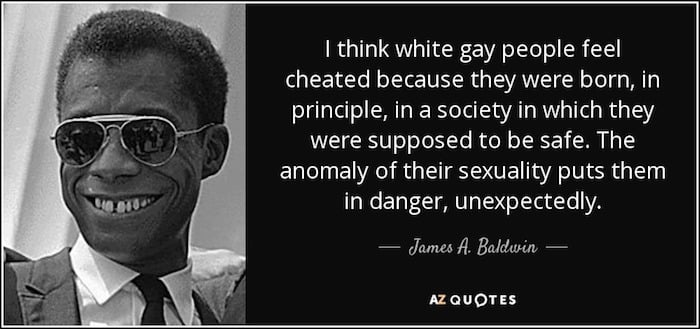Novelist and poet James Baldwin is a towering figure in black gay literary history. With his powerful and deliberate words, Baldwin also became one of the loudest, most lauded, and celebrated voices of the Civil Rights Movement.
Baldwin is best known for his works “Go Tell It on the Mountain,” “Giovanni’s Room,” “Tell Me How Long the Train’s Been Gone, ” “Another Country,” and his 1963 classic “The Fire Next Time.”
INTERSECTIONALITY
For Baldwin, his queerness and his blackness were inseparable. He was intersectional before the word existed, Chris Freeman, English professor at the University of Southern California, told NBC News.
“James Baldwin was intersectional before there was a classification of intersectional,” Freeman said. “He is the reason we even have the word.”
ALSO READ: Sir Lady Java, a transgender trailblazer
Born in Harlem, Baldwin developed a love for writing after being mentored by painter Beauford Delaney in Greenwich Village. During his teen years, Baldwin realized he was gay.
Due to the racism and inequality, Baldwin was 24 when left the United States for Paris, where he joined the counterculture movement of the Left Bank and emerged as an exceptional writer with pointed views on race.

Novelist and poet James Baldwin is a towering figure in black gay literary history. He also became one of the loudest, most lauded, and celebrated voices of the Civil Rights Movement. Photo: AZ Quotes.
IGNORED BY LEADERS
Despite his success and vocal stance against systemic racism in the U.S., many civil rights leaders weren’t happy with his openness about being gay. However, Baldwin’s growing acclaim made him a sought after public speaker.
ALSO READ: Sister Rosetta Tharpe, the godmother of rock ‘n’ roll
Baldwin died in France in 1987 before he was able to finish what would have been his final novel. That manuscript inspired the Oscar-nominated documentary “I Am Not Your Negro,” about the lives of Martin Luther King Jr., Malcolm X, and Medgar Evers.
However, critics of the film say Baldwin’s sexual identity was largely avoided ignored in the film, briefly mentioned in the film through an FBI memo.
GETTING RESPECT
Michelle Gordon, a visiting assistant professor of African American studies at Emory University, also told NBC News that Baldwin’s sexuality was complicated and many people weren’t comfortable talking about it.
“For a long time, when he was talked about by scholars, it was not really about his sexual orientation,” she said. “It has been in the past 15 or maybe 20 years that the discussion of his sexuality has begun.”
In 2012, Baldwin was inducted into Chicago’s Legacy Walk, an outdoor museum that celebrates America’s LGBTQ history.
